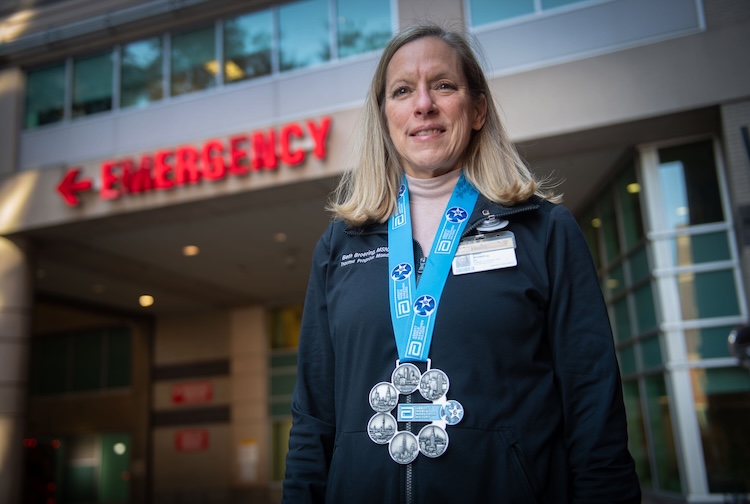Common myths and misconceptions about colorectal cancer
For Colorectal Cancer Awareness Month, a VCU Massey Cancer Center surgeon breaks down several myths about this commonly diagnosed cancer.
March 14, 2023 March is Colorectal Cancer Awareness Month (iStock)
March is Colorectal Cancer Awareness Month (iStock)
By Annie Harris
Colorectal cancer is one of the most commonly diagnosed cancers in the United States, and while overall incidence rates have dropped in the last few decades, they are rising among people younger than 55, according to the American Cancer Society.
This trend is concerning to experts, particularly because there is a safe and effective screening for colorectal cancer. “Colonoscopy remains the best screening study we have for any type of cancer,” said Jaime Bohl, M.D., colorectal surgeon at VCU Massey Cancer Center and chief of colon and rectal surgery at the VCU School of Medicine.
One possible reason behind the increase in diagnoses among younger people is that many fell behind in their routine physicals and screenings during the COVID-19 pandemic. Delays in routine screening can lead to a later-stage diagnosis and potentially worse health outcomes.
“If you aged into the recommended screening group - adults 45 to 75 - during the pandemic, you should make sure to talk to your primary care provider about colorectal cancer screenings and others you may be eligible for,” Bohl said.
This Colorectal Cancer Awareness Month, Bohl sets the record straight on the myths and misconceptions she most commonly hears from patients about screening and treatment of colorectal cancer.
MYTH: Colonoscopies aren't safe.
FACT: While there are small risks, like with any medical procedure, outcomes like bleeding or perforation during a colonoscopy are incredibly rare and are far outweighed by the benefit of identifying precancerous polyps or early-stage cancer, when treatment is most likely to result in cure.
MYTH: A colonoscopy is the only screening option for colorectal cancer.
FACT: In addition to colonoscopy, screening options include stool tests - a sample of stool, usually collected at home, that a lab can use to look for DNA changes that may indicate signs of colon cancer. There is no reason to worry if your provider recommends starting with a stool test rather than a colonoscopy - the test that patients are given is going to be the best test for them. Stool-based studies have improved greatly over the past 10 to 15 years.
MYTH: Abdominal pain and bleeding are common symptoms of colorectal cancer.
FACT: The most common symptom of colon and rectal cancer is no symptoms. If symptoms are present at all, they are more likely in later-stage cancer - another reason why it's important to get your routine screening.
MYTH: A rectal cancer diagnosis means a major surgery.
FACT: Here at VCU Massey Cancer Center, we've really turned the paradigm of rectal cancer treatment on its head. The old approach for locally advanced rectal cancer was to do big surgery first, followed by chemotherapy and radiation. Now, we start with chemotherapy and radiation. Some patients achieve a complete response and can avoid surgery with careful follow-up. If patients don't get a complete response, a smaller surgery may be enough to remove all the remaining cancer.
MYTH: I can take my screening and treatment recommendations straight from the headlines.
FACT: Researchers frequently publish results in scientific journals in order to help advance improvements in treatment and facilitate scientific discovery. But there are often nuances in the studies that a headline or brief news story may not perfectly communicate to its readers. You have to dive into the details of a study that may call into question the need for a colonoscopy or lead someone to believe they only need a certain type of treatment. Of course, patient education and self-advocacy are incredibly important, but the best care decisions are made in concert with a trusted provider.




